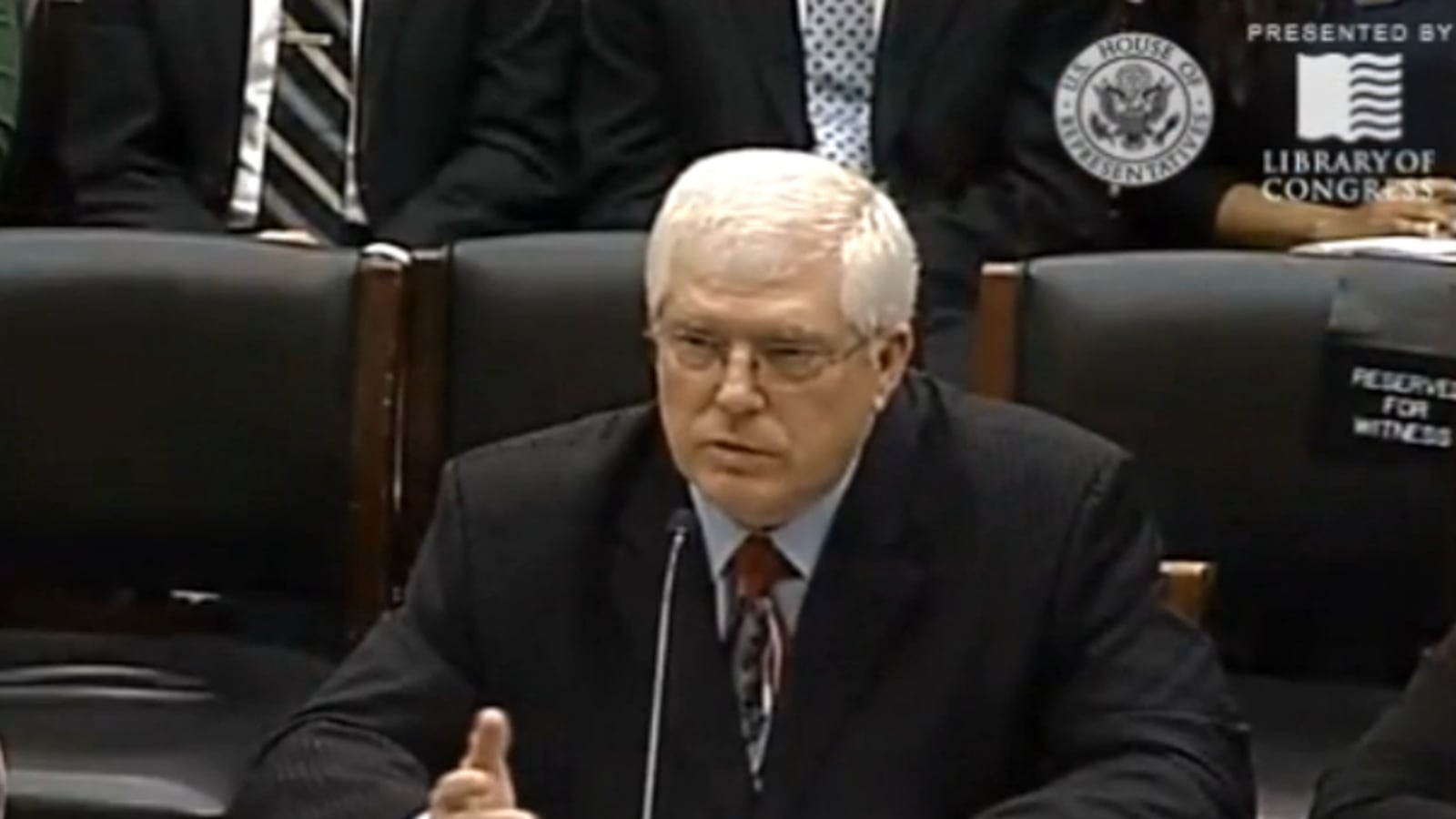“I don’t think about—things I don’t think about.” So said William Jennings Bryan, the lawyer arguing against evolution, at the infamous Scopes “monkey trial.” The question was about Cain’s wife; the answer was about willful ignorance.
The same philosophy was on display this week in Congress, when Mat Staver of the U.S. Liberty Counsel—which, like its better-known cousin the Alliance Defending Freedom, works in courts and legislatures to carve out religious exemptions to anti-discrimination laws—struggled to distinguish between a wedding photographer turning away gay customers and one turning away black or Jewish ones.
“I think that’s fundamentally different,” Staver said, when asked by Rep. Jerrold Nadler (D-NY), who is Jewish. Why? Because “she’s not saying ‘I don’t want to go to a wedding where there are people who are gay or lesbian.’ She’s saying she doesn’t want to photograph a celebration of same-sex unions.”
Ah, so as long as gay people marry people of the opposite sex, they’re perfectly welcome. Just not when they get gay-married.
Congressman Nadler didn’t buy it. He changed his hypothetical. “Well, what about a celebration of black unions? Suppose I don’t think black people should get married—that’s my religion. Is it an imposition on my religious freedom for the government to say I can’t discriminate?” In other words: not just black people getting married, but people getting black-married.
“I think it’s fundamentally different, and I don’t think that’s the issue in that case,” Staver said without explaining why.
Nadler, knowing he had him, said, “So suppose a photographer had a religious belief that she shouldn’t photograph a Jewish wedding?”
“I think it would be something she wouldn’t object to.”
But what if she did, Nadler pressed.
“She would have an issue there—a violation potential in that case.”
Bingo. What LGBT activists have been saying for years—that discrimination is discrimination—has finally been admitted. Protecting Jews from anti-Semitism is a “violation potential” of the anti-Semite’s religious freedom. The Liberty Counsel said Uncle.
The Nadler-Staver battle (Nadler 1, Staver 0) was eerily similar to a hilarious but little-reported exchange in Houston last month between City Councilwoman Ellen Cohen and the aptly-named Paster Betty Riggle of Grace Community Church.
Like Nadler, Cohen—who is also Jewish—substituted “Jewish” for “gay” and watched Riggle wriggle. The judge asked: “If somebody owns a store …. and I come in as a woman, or a senior, or a person of the Jewish faith … they have a right to refuse me business, is that what you’re saying?”
“I don’t have any problem with that. That’s not the issue,” Riggle replied. As Cohen continued, Riggle said, “They have the right … to be able to refuse service that goes against their religious belief.”
“That’s what I’m saying,” Cohen said. “So … they have a right to refuse me service.”
“Yes,” Riggle said quietly.
“So you’re saying ‘Yes,’ they do have the right to refuse me service as someone of the Jewish faith.” And here’s the best line, unedited:
“No. No, I’m not saying—Yes, I am saying that, but that is not the issue that we’re talking about.”
What both of these exchanges indicate is that, indeed, there is no difference between turning the gays away and turning the Jews, blacks, seniors, or women away. There are people with religious beliefs that disfavor all those groups. Just decades ago, Southerners argued that being able to keep their schools segregated was a matter of “religious freedom.” The only difference is that some discrimination is bad, but other discrimination is good.
Of course, religiously-motivated racial discrimination used to be “good,” right up through the 1980s. One of the most notorious desegregation cases, about the Heart of Atlanta Motel, centered around a restaranteur who said his religion forbade mixed-race seating. And the evangelical Bob Jones University went all the way to the Supreme Court to defend its religiously-grounded racist policies, as recently as the Reagan administration.
Now, of course, Staver, Riggle, and the like are shocked, shocked, that anyone might want to discriminate against blacks or Jews. (Although it’s interesting that Staver refused to fold when Nadler asked about African-Americans; perhaps a Jewish wedding, unlike a “black wedding,” is really a thing, and something that someone might object to supporting.)
Ironically, these real-life slippery slopes come right on the eve of a Supreme Court case, Hobby Lobby, that court-watchers expect will ratify exactly the kind of religiously-motivated discrimination that these exchanges are really about. There, the context is health insurance and contraception, not gays and weddings. But the same principle should hold: if you can opt out of some laws because they offend your religious freedom, why not opt out of others?
This, of course, is exactly the aim of the ‘religious liberty’ crowd. The ship may have sailed on African-Americans and Jews, but it is just leaving the harbor when it comes to LGBT people—and it is sinking fast when it comes to women’s healthcare. If people don’t have to obey the laws protecting women and gays, they aren’t really laws.
In the meantime, look forward to more squirms and wriggles like these. To be fair, Riggle and Staver are right about one thing: there probably aren’t as many overt racists and anti-Semites out there as there are homophobes and sexists. But then again, isn’t that the point?






